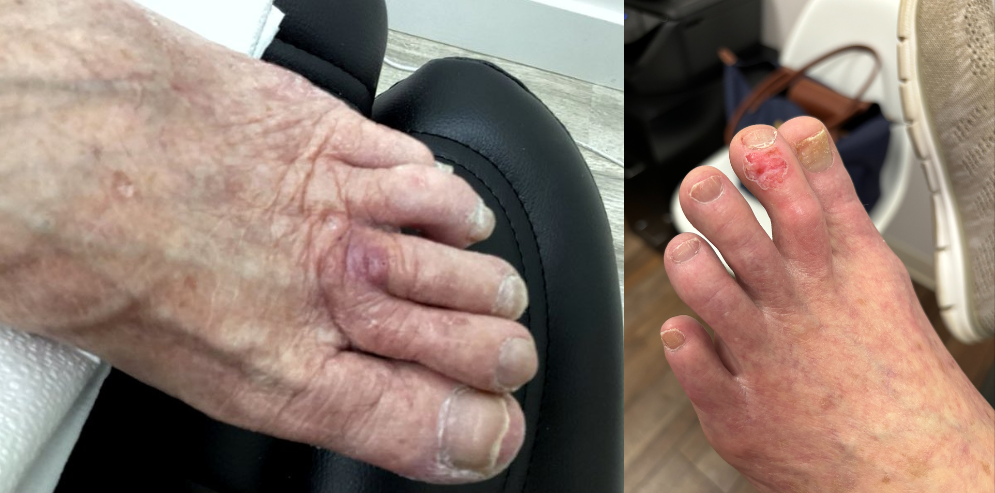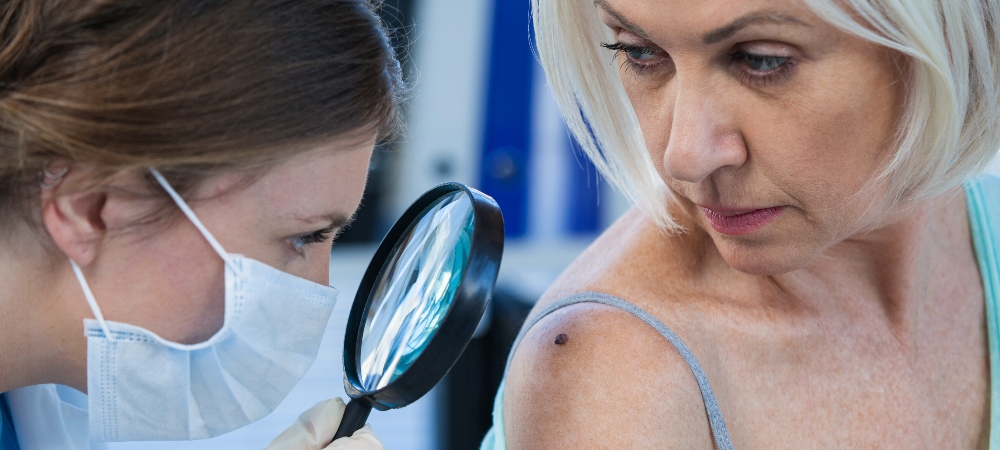
Skin cancer occurrence is highly correlated to age, with older age groups being much more likely to receive a diagnosis than younger ones. Although patients older than 75 are most likely to be diagnosed with skin cancer, the likelihood of a skin cancer diagnosis grows steadily as the patient ages, starting around the ages of 20 to 24. As a result, one in five Americans will develop skin cancer by the age of 70.
Can You Get Skin Cancer at Any Age?
Can you get skin cancer at any age? In theory, yes, but the relationship between cumulative sun damage and skin cancer tells us that the disease is more likely to occur in older patients.
So, at what age does skin cancer typically occur? Skin cancer age statistics show that it depends on several factors:
- The highest rates of skin cancer occurrence are found between the ages of 85 to 89 for men, or above the age of 90 for women.
- Before the age of 50, women are more likely to be diagnosed with melanoma than men. After the age of 50, the trend reverses, and men are more likely to be diagnosed than women.
- Under age 49, melanoma is the most common type of cancer found in men. In women of the same age group, melanoma is the third most common cancer, behind breast and thyroid cancer.
- Melanoma occurs at relatively higher rates in younger people, compared to other types of skin cancer.
- Skin cancer in younger patients—and especially in younger women—is highly correlated with tanning bed usage.
- Other types of skin cancer—including basal cell skin cancer and squamous cell skin cancer—can also occur at any age. However, these are both significantly more common in adults over 50.
Although a person is relatively unlikely to develop skin cancer at a young age, it’s never too early to start protecting yourself from the causes of the disease. Just one blistering sunburn in childhood will significantly increase one’s risk of developing skin cancer later in life.
Consider GentleCure for Common Skin Cancer Treatment
If you’ve recently received a common skin cancer diagnosis, you may be able to treat the illness without any risk of surgical scarring. Ask your doctor if GentleCure™ (Image-Guided SRT) is the right choice for you. While you’re here, find out how this surgery-free alternative really works.







